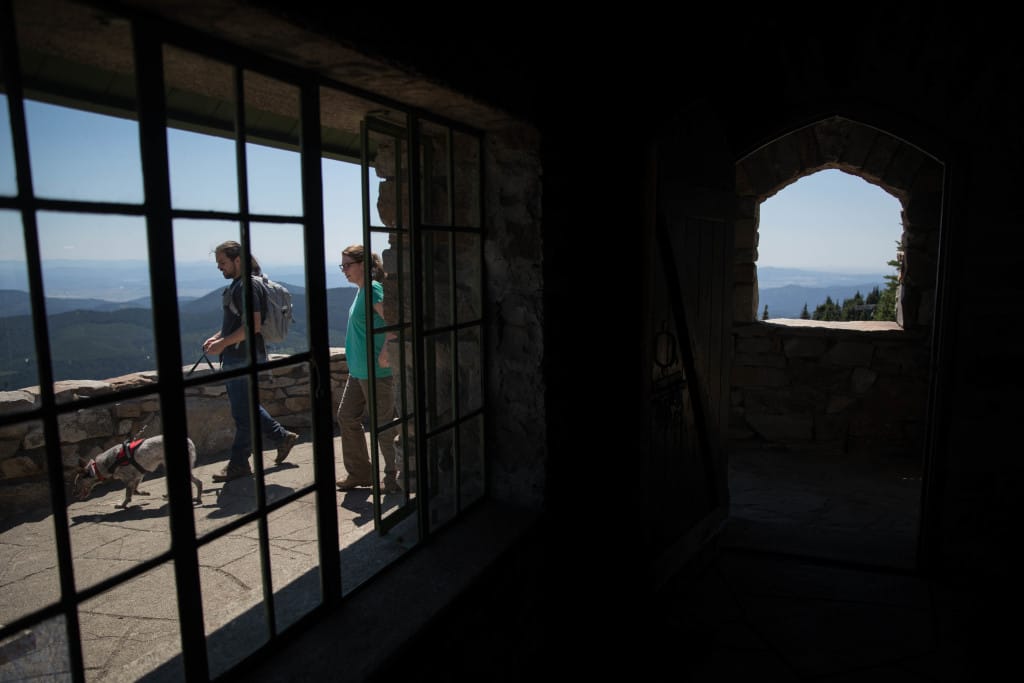Anyone expecting a sea change in state politics is bound to be disappointed, even if, in the wake of last year’s divisive presidential election, some might hope for one. The Puget Sound region and Eastern Washington are very different places, and our politics stem from deep-rooted local issues, culture, faith and traditions.
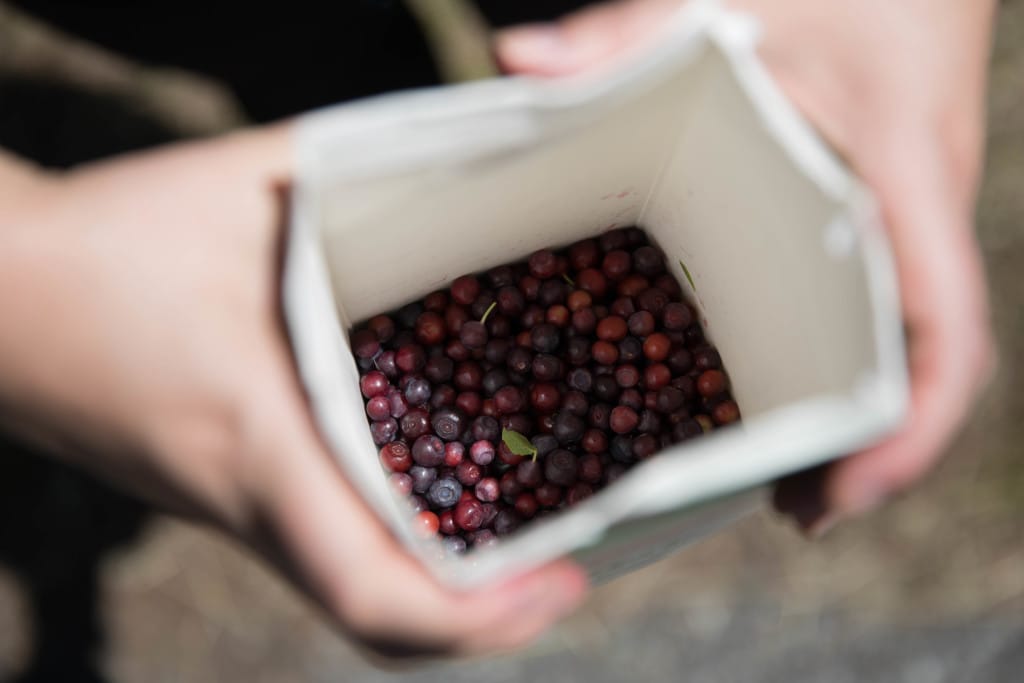
At the end of our Highway 2 trip exploring Washington’s East-West divide, photographer Matt Mills McKnight and I found ourselves in Newport at the Idaho border late on a Sunday morning. We’d slept in, so missed the chance to visit a local church. And, on our way into town that day, we’d been sidetracked by a trip up Mount Spokane with its spectacular views of the region of lakes, fields, mountains and pine forests. We’d been distracted also by huckleberry pickers on the roadside so we stopped to sample the just-ripe berries.
By the time we got to Newport, church services were over and the town was shut up tight, the streets empty for the most part, most of the town businesses closed including, disappointingly, the old-fashioned soda fountain. Coming from a 24/7 city, I had completely forgotten that some people still recognize a day of rest.
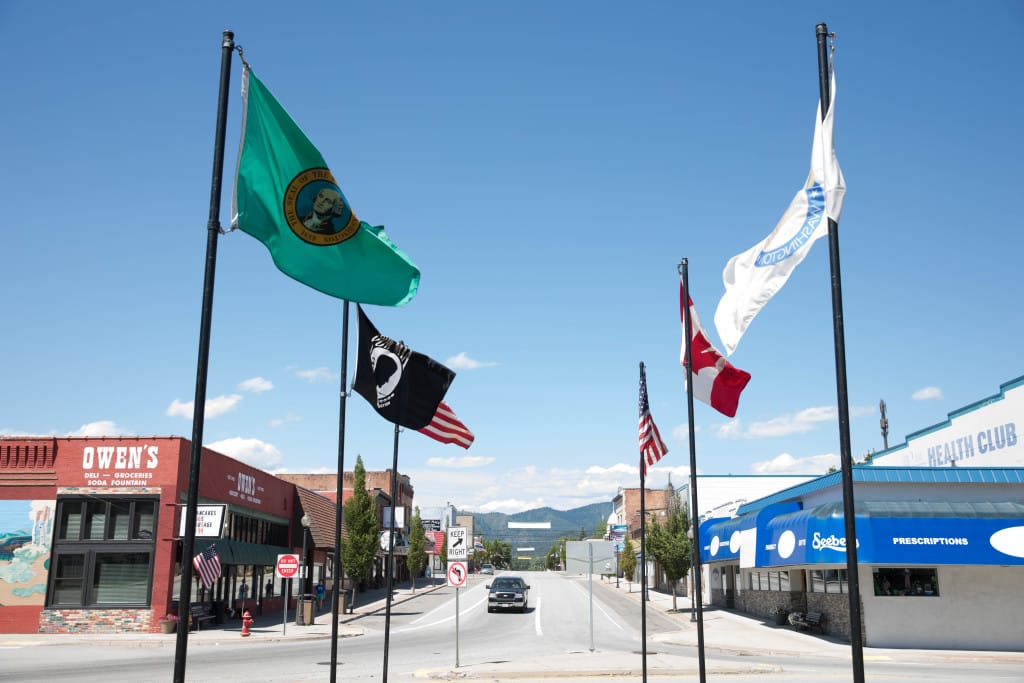
One attraction was open, however: the Pend Oreille County Historical Museum. Its cluttered displays of local history proved fascinating. They feature clothes, everyday items, photographs and artifacts of early county history dating back to the fur trade. It was much like other museums we checked out along Highway 2 — mostly dedicated to frontier history. Native American displays in such places are often collections of arrowheads or baskets and beadwork obtained by great grandparents.
Make no mistake: History, as understood here, is deeply rooted in settler culture — homesteaders, farmers, loggers, town fathers and mothers. These small museums are like family scrapbooks. There is little attempt at interpretation or context. Wandering through them often feels as if you’re in a very good local antique mall.
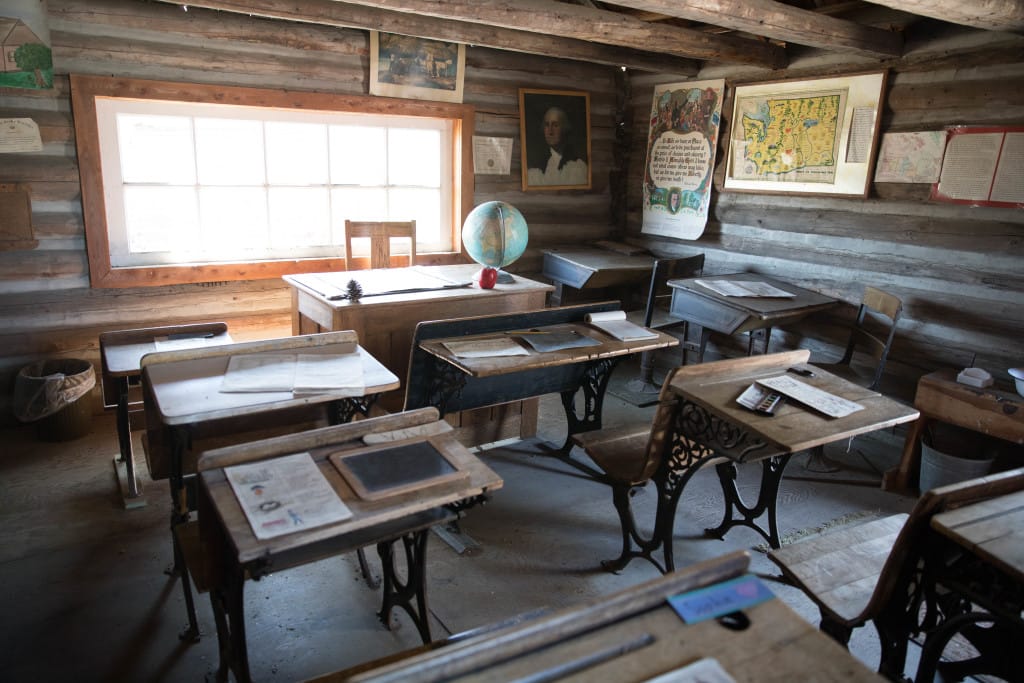
Politics still spring from these roots. Pioneer attitudes about the government and land use are still present. Kelli Scott, editorial page editor of the Wenatchee World, told me that there was a lot of sympathy in her area for the Bundy family who occupied Malheur in Oregon. This attitude is often baffling since it is from folks who live in a world that would be nonexistent without the federal government’s programs and policies — homesteading, public power, land reclamation, the federal farm subsidies. Yet understanding that complex environment should not replace or lessen anyone’s appreciation for the sweat equity and challenges of local farmers, ranchers and growers and the towns that serve them.
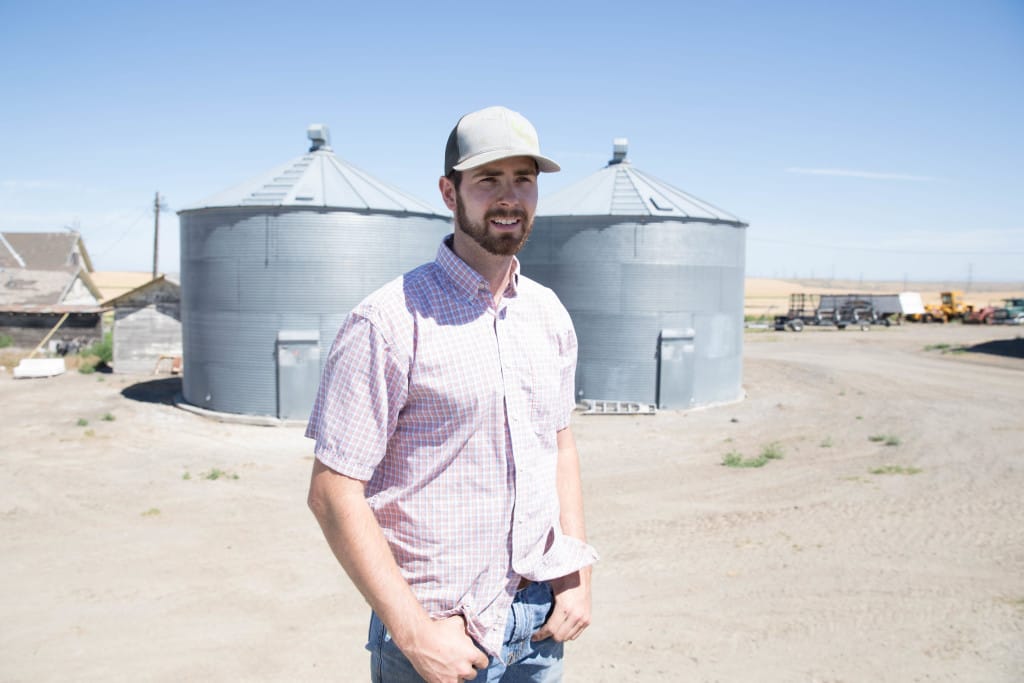
People I talked to in these rural areas feel misunderstood by the rest of us. We spent time with wheat rancher Howard McDonald, president of the Washington Association of Wheat Growers, who has farmed most of his life on land outside Coulee City. I asked him what he thought Seattleites should know. His answer: “Where does a loaf of bread come from?” Our lack of understanding of what farmers need and do is understandably bothersome to McDonald and other wheat growers. As they produce our foods, they are increasingly using more sustainable methods of working the land — seeding crops more efficiently in order to lose less topsoil for one thing; using more precise machines that spread less fertilizer for another.
“We’re not here to destroy the ground or people in general,” McDonald says. “We’re not doing it to get rich.” He works the land with the help of his twin sons, Travis and Taylor, and hopes they can continue their family’s way of life for another generation. Says Travis, “We’re out here trying not to sink this ship.”
Howard McDonald talks about his politics. “I’m a conservative. Do I vote GOP? Ninety-nine percent of the time, yes. I’m smart enough to look at the individual.” His father, he allows, liked Henry M. “Scoop” Jackson, once a popular and powerful Democratic U.S. senator, but that’s going back a long way now. He says wheat growers have issues with Donald Trump, but they have issues with every administration. He feels like most state politicians don’t really understand his business, though he thinks Cathy McMorris Rodgers, the Republican who represents him and much of Eastern Washington, does understand.
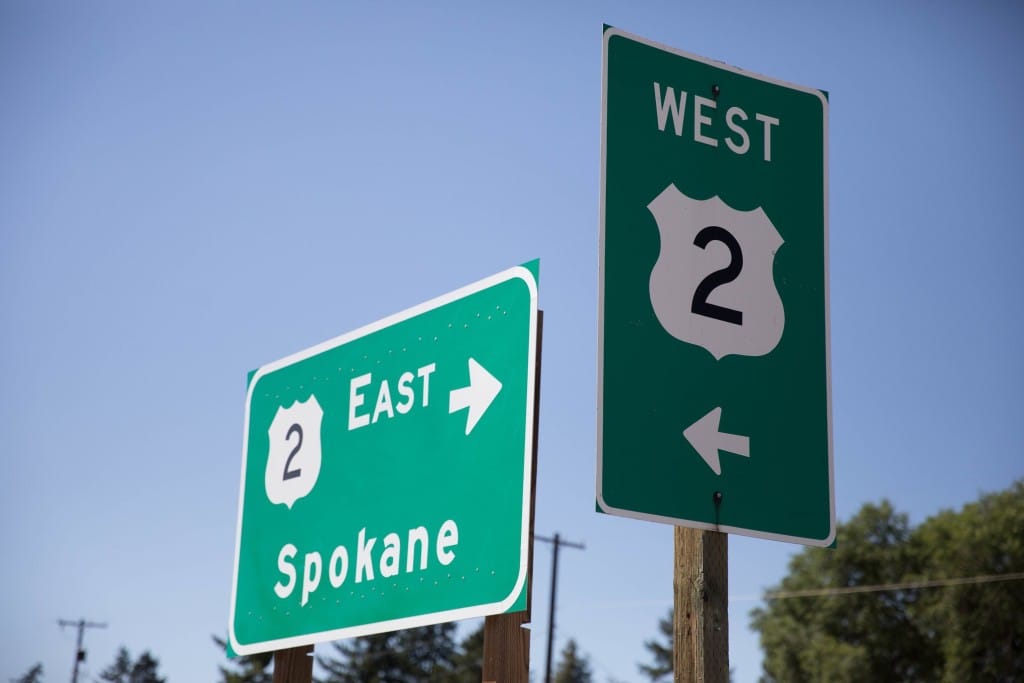
Back in Wenatchee, Kelli Scott is experiencing some cross-state cultural adjustments. She was raised in Tacoma, not Wenatchee, and was on the staff of former Democratic Congressman Norm Dicks, a Scoop Jackson-style Democrat, strong on defense, the environment and workers. She assumed the editorial page duties at The Wenatchee World last spring. She’s a Democrat in a Republican town, and the first woman to edit the editorial page. Despite her connection to the Woods family that owns the paper, she still feels she’s not a local yet.
Many of her neighbors are conservative. There’s a deep evangelical influence in the community, she says. Her husband is an attorney and consultant who works for clients in Washington, D.C. — and he’s Republican.
Scott is not a hard-left ideologue. She publishes a blog, Wenatchee Mom Blog, that focuses on parenting, food and health. At the newspaper, she has focused on issues like women’s rights and health care — recently more than 80 local doctors signed a Wenatchee op-ed against repealing Obamacare. She’s pushed back on the anti-transgender bathroom movement and criticized the so-called Pence rule: Don’t dine alone with a woman who is not your wife. She says she got some very angry response to the Pence piece, but one encouraging note from a 90-year-old reader who said, “keep sounding the bell for women!” She plans to.
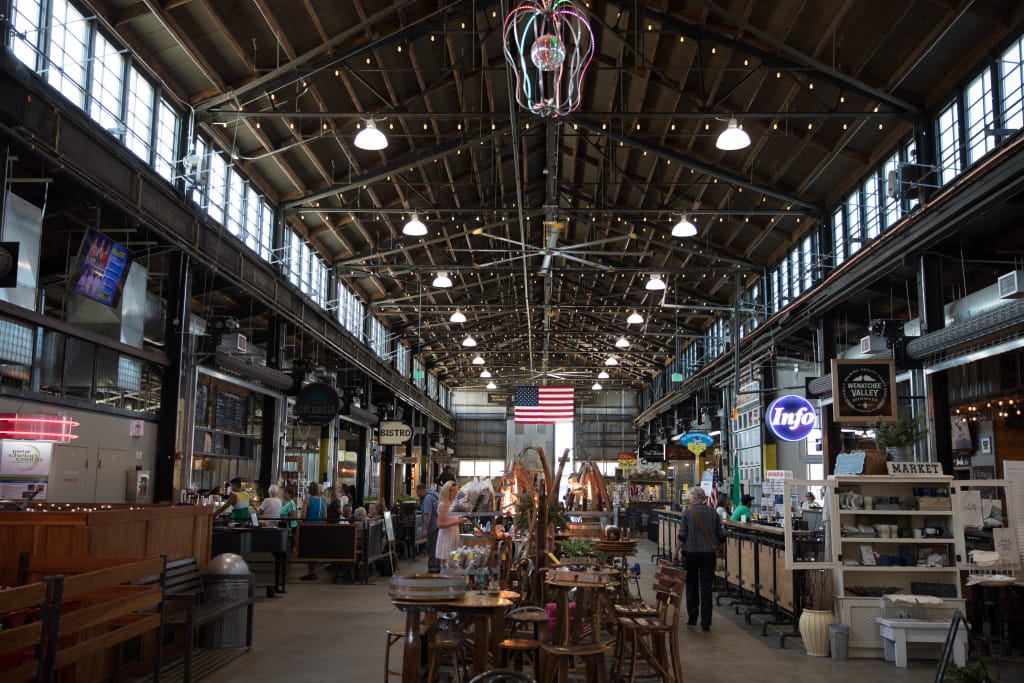
Wenatchee in north central Washington feels a bit like the state’s middle ground. The city itself has a wonderfully restored and active historic district. Columbia River paths and parks connect the town and river. And an old steel fabrication plant there has been turned into a public market, with a sign that looks an awful lot like Pike Place Market’s. There are coffee shops, wine tasting rooms and restaurants. If you’re heading east, this will be the last place you’ll find hipsters until you reach Spokane.
Scott says she loves Wenatchee, but she seems to feel some insecurity. Partly that’s being a relative newcomer, partly that’s the challenge of trying to surmount political divisions where there is so much hostility between sides.
“At the end of the day,” she says, she wants people “to be OK with each other.”
That, I think, is part of the attitude we embarked with on this road trip. Despite major differences, there is a lot of common ground among the people of this state. It doesn’t mean changing our beliefs, but it should mean that we can find a better brand of politics than cries of “fake news,” trolling and trying to secede or cut each other off.
People are way more than how they vote, but how they vote is connected to their history, race, family, land, experience and day-to-day challenges. Same for us here on Puget Sound. We might have different priorities — in Seattle, we worry about affordability, housing, the homeless and police accountability. In rural areas, they worry about affordability, jobs, housing and too much government red-tape and rules. Different, but not entirely so. Supporting home and family are big issues for everyone.
Following Highway 2 across the state, I came away feeling more connected, not less. I came away thinking that while people make different choices, there is a ton of common ground. I know a little more about where a loaf of bread comes from. That’s a good thing, right?
